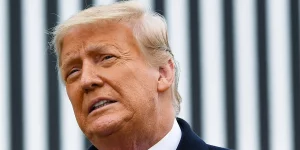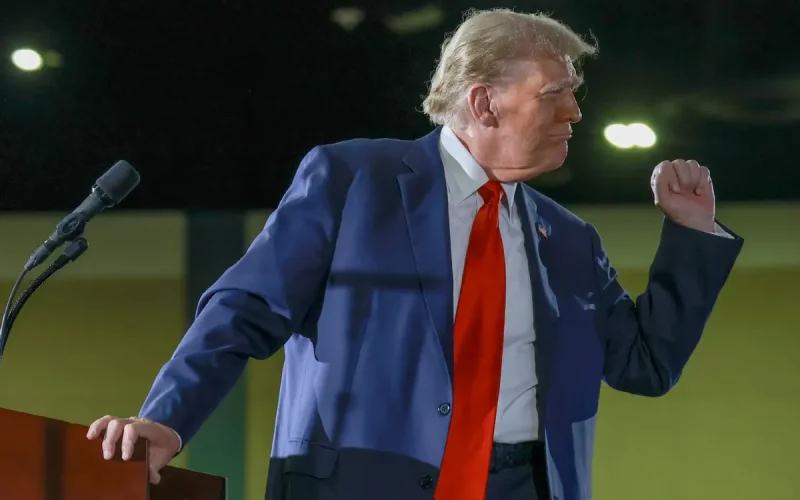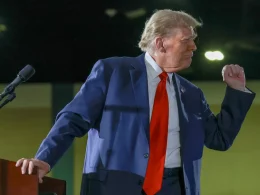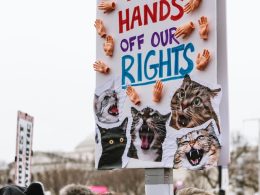In a bid to galvanize evangelical voters, former President Donald Trump has persistently claimed that Christianity faces a looming threat within the United States. This assertion has been a recurring theme throughout his political career, often resonating deeply within conservative Christian circles. Trump’s narrative positions himself as a defender of religious freedom and traditional values against what he portrays as an encroaching secular agenda. However, the validity of these claims and their implications warrant a closer examination.
Trump’s Rhetoric on Christianity

Trump’s rhetoric on the perceived threat to Christianity in the US is multifaceted. He frequently depicts a nation in moral decline, citing issues such as the erosion of traditional family values, the legalization of same-sex marriage, and the advancement of LGBTQ+ rights as evidence of this decline. Additionally, Trump often asserts that there is a concerted effort by secular forces to marginalize Christianity from the public sphere, citing instances of perceived discrimination against Christians in areas such as education, media, and the legal system.
Analysis of Trump’s Claims
While Trump’s assertions may resonate with some segments of the population, they are not without controversy or criticism. Critics argue that Trump’s narrative of Christian persecution is exaggerated and politically motivated, designed to rally his base rather than address genuine concerns. Moreover, many of the issues Trump highlights, such as the legalization of same-sex marriage and LGBTQ+ rights, are viewed by proponents as advancements in civil rights rather than threats to Christianity specifically.
Comparative Analysis: Christianity in the US
To provide context to Trump’s claims, a comparative analysis of Christianity in the US is instructive. While it is true that the US remains predominantly Christian, there have been significant shifts in religious demographics over the years. The percentage of Americans identifying as Christian has declined in recent decades, with a corresponding rise in the number of religiously unaffiliated individuals, including atheists and agnostics. Additionally, there is increasing religious diversity within the US, with growing populations of Muslims, Hindus, Buddhists, and adherents to other faiths.
Perceived Threats to Christianity
Trump’s assertion of Christianity being under threat often focuses on specific issues such as religious freedom, particularly in the context of government policies and legal decisions. Cases involving conflicts between religious beliefs and anti-discrimination laws, such as those related to LGBTQ+ rights and healthcare mandates, have garnered significant attention and debate. While some view these issues as genuine threats to religious liberty, others argue that they reflect the necessary balance between individual rights and societal progress.
Analysis Table:
| Trump’s Claims | Counterarguments |
|---|---|
| Christianity facing threat in the US | Critics argue that this narrative is exaggerated and politically motivated. |
| Erosion of traditional family values | Changes in family structures are seen as part of societal evolution. |
| Legalization of same-sex marriage and LGBTQ+ rights | Viewed by proponents as advancements in civil rights. |
| Marginalization of Christianity in the public sphere | Debate over the balance between religious freedom and secularism. |
Comparative Table:
| Aspect | Trends |
|---|---|
| Religious Demographics | Decline in the percentage of Christians, rise in religiously unaffiliated individuals. |
| Religious Diversity | Increasing diversity with growing populations of non-Christian faiths. |
| Legal and Social Issues | Debates over religious freedom, LGBTQ+ rights, and anti-discrimination laws. |
| Public Perception | Differing views on the state of Christianity and religious freedom in the US. |
Conclusion
In conclusion, Trump’s claims of Christianity being under threat in the US serve as a rallying cry for evangelical voters, tapping into concerns about moral decline and religious freedom. However, the validity of these claims is subject to interpretation and debate. While there are indeed challenges and controversies surrounding issues of religious freedom and moral values, the extent to which Christianity is genuinely under threat remains a contentious issue. A nuanced understanding of religious dynamics in the US, along with an acknowledgment of competing interests and perspectives, is essential in evaluating the veracity of Trump’s assertions.












